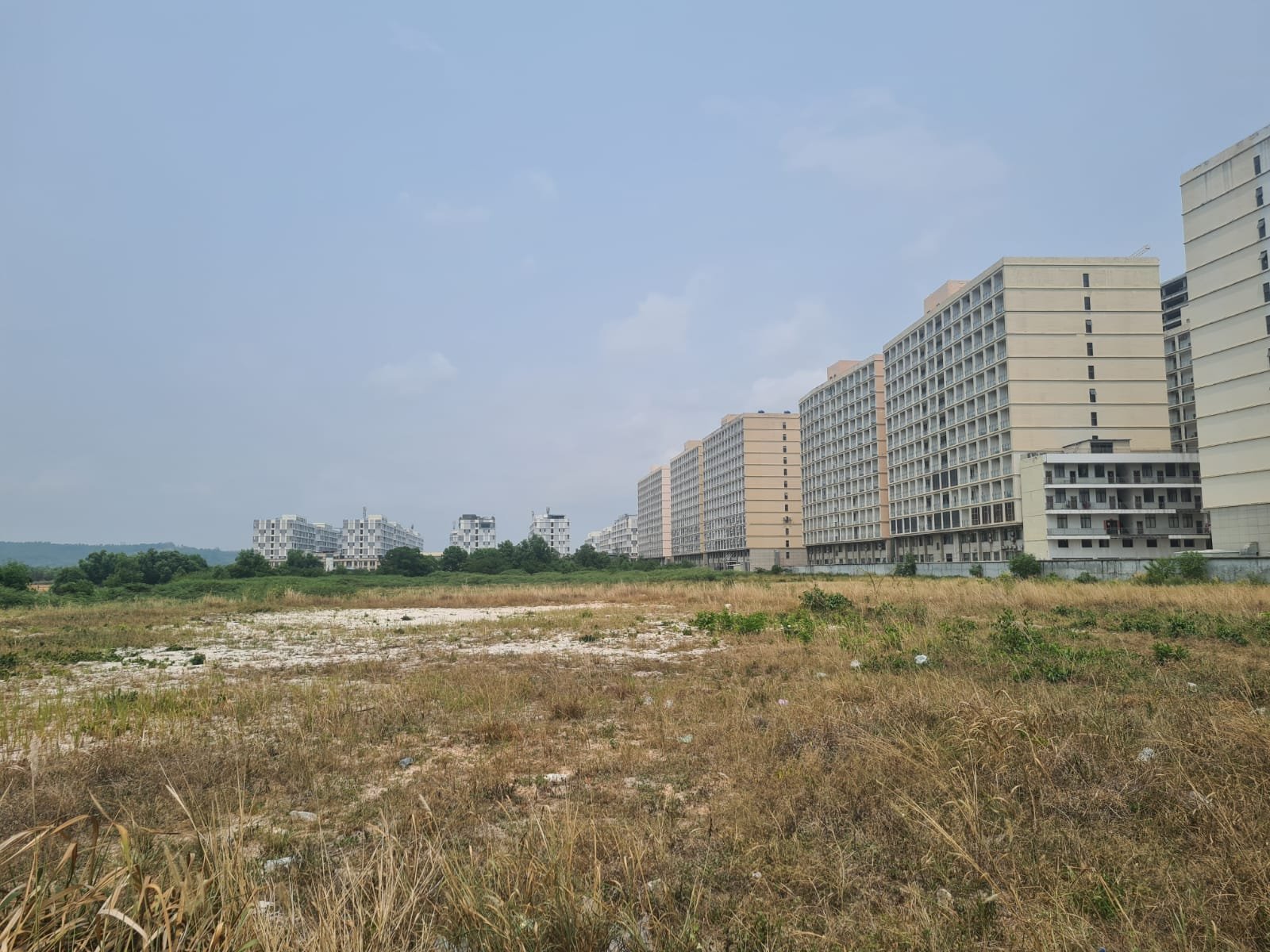
Oxana’s Story
Cambodia

One sunny afternoon in August 2022, Oxana was sitting in the lobby of a brand-new luxury resort, skiing through the Alps on a VR headset while surrounded by minders as she prepared to start her new job with a charity in an emerging commercial and tourism hub on Cambodia’s coast.
The job came with an apartment, a good salary and the promise of a glamourous life in the rising satellite city—a jewel along China’s Belt & Road complete with golf courses, casinos, and high-street shopping. To welcome Oxana, the company threw a boat party.

But just five days later, the 35-year-old Russian was fighting for her freedom and frightened for her life—pulled over on the side of the road in the middle of nowhere, begging her minders to set her free.
“I saw that I will just die. For me, it’s either death or I’m a slave—and maybe its death at the end of that anyway,” she said, a few months after escaping the ordeal.

The job she had applied for was fake. The recruitment process, a trap.
And now the people who had tricked, trafficked and attempted to enslave her were demanding $2,500 to set her free.
Video by Emilie Languedoc
This is a firsthand account from the survivor who wanted their story told.
Oxana’s story mirrors many from across Southeast Asia in recent years, as hundreds of thousands have been lured and forced to work in online scamming and gaming operations, according to the United Nations. Her detailed testimony gives rare insight to the tactics used by dodgy recruiters to ensnare educated, working professionals in their criminal operations.
Oxana was living in Phnom Penh, Cambodia, when she applied for the job through an agent she met on a website for jobseekers. The day after a Skype interview, she was in a company car, driving from the capital to the coast.
The six-hour trip gave minders time to fill Oxana with hope for a lavish new life but shortly after arrival, she began to see cracks in the VIP veneer. Passing armed security to enter the gated compound was the first red flag. Then there was the identity of the company, which seemed to shift between charity fund and loan shark, depending who was in the conversation, and her role, which suddenly seemed unfixed and loosely defined.
But all of her concerns were met with reassurances and distractions: boat rides, cash, upgraded accommodation, and promises of more attractive jobs – a honey-coated bid to keep her inside the compound.
“They were really nice with me. They didn’t show any negativity or aggression. They showed me that they actually understand my opinion,” she said. “I didn’t realise that they were actually holding me there.”
Oxana could sense that something was amiss, but was wary of causing a scene. She had heard about the rise of criminal-run scamming centers, how people forced into online fraud were traded between bosses, and the cruel treatment dished out to those who tried to escape.
Eventually, after days of careful negotiations, she loaded her luggage and herself into a car that her minders had organised to take her home.
“And then two more guys that I don’t know got into the car,” she recalled. “’I’m sorry, what are you doing in this car. This car is reserved for me. I am going to Phnom Penh’,” she told the two men.
“They said, ‘yeah, yeah, our company is also friends of this company. We also need to go to Phnom Penh. We actually ordered this car and they asked us to take you with us’,” she recalled them saying.
“I wanted to leave as soon as possible,” she said, and so off they went.
Tensions eased as the three chit-chatted for an hour. The men empathised with Oxana over the evil place she had escaped. Then, all of a sudden, the conversation took a turn.
“They started to ask me if I would consider working with them,” she said.
Oxana politely declined—but the two men were increasingly persistent, and then, without warning, the car pulled to the side of the road.
“They started explaining that, basically, I don’t have much choice,” Oxana said. “They said ‘You belong to us now. We already paid for you’.”
Her heart sunk as her mind flashed back through the past few days. Then, on the side of the road in the dark that night, the two men laid everything bare. Oxana had been in the grips of a cyber-crime gang from the moment she had landed the job. There was no charity. The whole ‘car-back-to-Phnom-Penh’ scenario was a charade. The two minders were working in the same criminal realm—possibly for the same boss.
And now, they were demanding a $2,500 ransom to set her free—the price they said they’d paid her previous captors.
“I was like ‘what do you mean? I have nothing to do with this $2,500. I did not make any deal. Nobody can sell me’,” she recalled, appealing for them to set her free.
But the two men held their ground.
“They said ‘No, no, no. Sorry, it doesn’t work like this. You have two options: you can go to work with us, and we make sure you are safe… or you can go back to these horrible people you left from… and you can’t imagine what they will do to you’.”
Racked with fear and panic, she could hardly think.
“I didn’t know how it would end. Will they let me free, will they kill me at the end or will they kill me now in the forest? I was so scared that I was just begging and begging,” she said.
“But then, somehow it arrived to my brain: wait, $2,500… It’s not that big money; I can just ask friends to send me this money now and it will be done.”
Oxana managed to secure her freedom. But her story is rare. It should serve as a warning: trafficking, slavery and exploitation can begin so subtly that they are near impossible to detect. Far from the old tropes of people being chained-up in basements, modern slavery is often obscured by a façade of luxury, and many victims do not even realise they are trapped until they attempt to leave.
This page contains a mix of representative and supplied photography. Representative images are used under Creative Commons.


